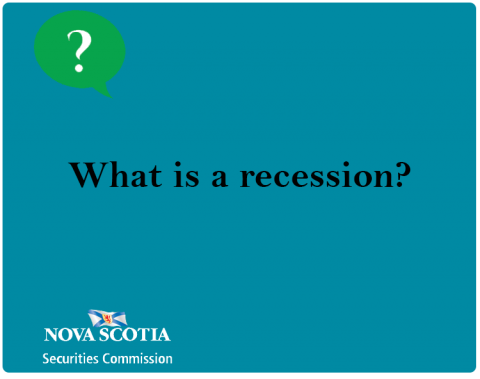Submitted by nsscadmin on

During times of economic turmoil, we often hear words like recession and depression thrown around. Over the next two weeks, we’ll look at both terms to see what they mean.
We’ll start today with recession. A recession is defined as a significant decline in economic activity that lasts for months or possibly even years. A recession is typically declared when a nation reports a negative gross domestic product (GDP), rising unemployment levels, falling retail sales, and a reduction in manufacturing.
When an economy actually falls into recession is debatable and is defined differently by some experts. For example, in 1974, economist Julius Shiskin published his own rules to define a recession. They included two consecutive quarters of declining GDP. This has become the standard definition for a recession for many other economists and experts as well.
A more flexible rule of determining a recession released by the National Bureau of Economic Research states, “a significant decline in economic activity spread across the economy, lasting more than a few months, normally visible in real GDP, real income, employment, industrial production, and wholesale-retail sales.”
There are several causes of recession, including excessive debt, asset bubbles, excessive inflation, excessive deflation, and economic shock. An example of economic shock could be the COVID-19 pandemic that affected economies across the world the last six months.
Next week we’ll look at what a depression is and how it differs from a recession.
